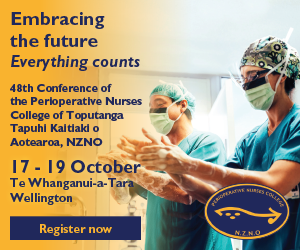I don’t know whether it’s prevalence of negative work relationships or their impact, or the combination of both, but recently I’ve been thinking (as have others1) that it seems hardly an issue of Kai Tiaki Nursing New Zealand goes by without an article on bullying.
As it turns out, a Gale search by NZNO librarian Heather Woods found 52 articles in Kai Tiaki with “bullying” as the main topic in the years 2007-2021. This search also turned up the helpful insight that bullying would be a focus for Kai Tiaki in 2020.2 That independent editorial commitment resonates with calls for NZNO to address bullying as a strategic priority.3
Organisations can try to stamp out bullying by, rightly, declaring zero-tolerance policies and implementing procedures for reporting bullying behaviour and upskilling targets to defend themselves. But that is not enough. In the pursuit of wellbeing at work, health service organisations must commit to dealing with the root causes of tension and conflict, such as barely manageable workloads, frenetic pace, change fatigue, and high staff turnover.4 And while it’s important organisations promote personal resilience for staff and a culture of respect at work, these are also only partial answers to systemic problems.5
What I’m interested in is how nurses survive – and sometimes even thrive – given the unavoidable stressors inherent in patient/client care…
What I’m interested in is how nurses survive – and sometimes even thrive – given the unavoidable stressors inherent in patient/client care and what would otherwise be avoidable stressors in the work environment. Part of the answer must rest with us.
Many years ago, I learned a great lesson from a colleague, Susie Bull. I was grumpy about something that had happened in our workplace, and Susie wasn’t. In fact I was surprised to find that she had quite a different perspective. How come? “I try to turn it around and look at it another way,” she said.
Turning negative to positive
So, in the spirit of her example, I would like to turn a few negative ideas around into positive ideas. For instance, if bullying can be defined as “… a continual and relentless attack on other people’s self-confidence and self-esteem”,6 what would the opposite look like? “Consistently appreciating and valuing others’ skills and inherent worth”?
Examples of incivility include excluding others, dismissing another’s ideas or opinions, and making demeaning or derogatory remarks.7
In contrast, civility just seems a reasonable way to conduct oneself – welcoming and including people, respecting others’ ideas and opinions, seeking to understand their perspective, trying to be aware of one’s own unconscious bias. What does it take to turn a risk factor into a protective factor for wellbeing at work? The smallest kindnesses, acknowledgements and appreciations from colleagues add up to making the people you work with one of the best things about your job.
It seems particularly timely to be writing about colleagueship for the last issue of Kai Tiaki with which long-standing co-editor Teresa O’Connor will be involved. Not only because in that role she has been, for 29 years, an articulate advocate within nursing, but also because she wrote an especially meaningful appreciation of what nurses do – an account of skilful and respectful nursing at the end of her mother’s life. Though describing her own deeply ambivalent membership of our profession, she wrote that this “…recent exposure to the essence of nursing… restored my faith in the fundamental goodness at the heart of our profession”.8
We should not hesitate to call out disrespectful behaviour, nor resile from acting collectively to address the stressors and pressures that predispose to unhealthy work environments. We could accept various forms of negative colleagueship as dismayingly inevitable or ineradicable. But perhaps it is more empowering and enabling to believe in the fundamental goodness of the overwhelming majority of our colleagues, and act on that.
Shelley Jones, RN, BA, MPhil, works independently in professional development for nurses. She believes the fundamental goodness at the heart of nursing is a foundation for shared resilience among colleagues. She runs a workshop on Personal Resilience and Positive Colleagueship.
Shelley is grateful for the critical peer review of this article by colleague Faith Roberts, a staff nurse in Wellington Regional Hospital’s Main Outpatients, whose professional interests include how we support nurses in frontline roles.
References
- de Visser, D. (2020). Bullying is a systemic problem and must be managed as such. Kai Tiaki Nursing New Zealand, 26(2), 3.
- NZNO news. (2020). 2020 themes: Bullying a year-long priority for Kai Tiaki. Kai Tiaki Nursing New Zealand, 26(1), 4.
- Board of directors. (2018). Bullying strategy needed. Kai Tiaki Nursing New Zealand, 24(11), 41.
- Croft, K. R., & Cash, A. P. (2012). Deconstructing contributing factors to bullying and lateral violence in nursing using a postcolonial feminist lens. Contemporary Nurse, 42(2), 226-242. doi.org/10.5172/conu.2012.42.2.226
- Traynor, M. (2017). Resilience: part of the problem or part of the solution? Mental Health Nursing, 37(6), 8-10.
- Field, T. (n.d.) cited in Andrea Needham Charitable Trust, page 44. (2019). Workplace Bullying. A costly business phenomenon. Revised Edition, edited by Bentley T., Catley B., D’Souza, N. Andrea Needham Charitable Trust: Auckland, New Zealand.
- Laschinger, H. K., Wong, C., Regan, S., Young-Ritchie, C., & Bushell, P. (2013). Workplace incivility and new graduate nurses’ mental health: the protective role of resiliency. The Journal of Nursing Administration, 43(7/8), 415-421. doi: 10.1097/NNA.0b013e31829d61c6
- O’Connor, T. (2010). Regaining renewed respect for nursing. Kai Tiaki Nursing New Zealand, 16(1), 21.



